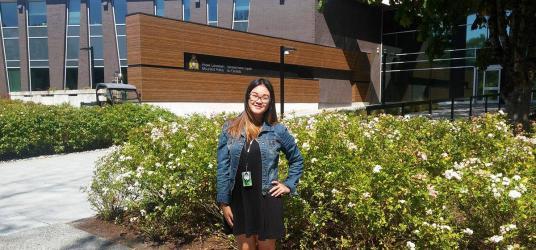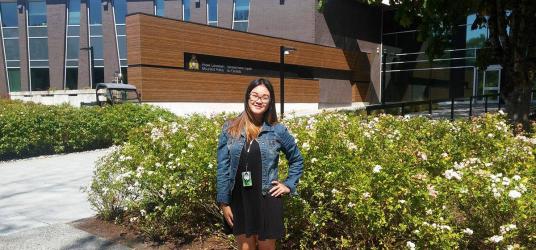
We tend to have very concrete ideas as to what careers come out of our disciplines of study. Biology naturally turns into medicine, while engineering usually leads to becoming an engineer. As a Communication student, my dream co-op jobs were in the fields of journalism, public relations, or social media. Instead, I landed a job as an Administrative Assistant with the Royal Canadian Mounted Police (RCMP), an organization that I never would have even considered working for if it wasn’t for co-op. Beyond this, I wasn’t even working in their Communications department, I was working in their Occupational Health and Safety Unit.
In the lead up to my work term, I had doubts about my abilities and whether or not this would help me in my studies. As I draw near the end of my co-op, I realize now that even though this isn’t a traditional Communication Co-op position, it is still an important experience nonetheless, and it helped me to expand my knowledge as well as my horizons. Here are four things I picked up along the way:
Take Notes Religiously
My first week on the job was new information overload. Within a week, I was hit with a lot of terminology, acronyms and policies that were a far cry from analyzing semantics and propaganda filters in school. I scribbled down as much as I could remember in my little notebook, and over time, I found that it was good to make notes as I went along. It helped me to focus my listening and take down relevant information so that I had it for later, much like when I was sitting in lecture. My notebook became my best friend as it reminded me of procedures for various tasks, as well as gave me an opportunity to write down what worked and what didn’t, and how I could improve the next time this task came around.
Learn As You Go
One of my assignments allowed me to work side by side with the BC RCMP Mental Health Strategist to compile statistics and create various Excel spreadsheets to collect data, something I was not familiar with at all. Over time, I learned more about Excel and data analysis through this project than I ever would have alone. I will admit that that the first few weeks with the project, I was stressed out about how I would be able to learn all of this new information in such a short period of time, because many people were depending on these numbers to be accurate. As time went on, my confidence increased and soon, number crunching became a part of me – something I never thought I would say, considering the fact that I am so used to essay writing and editing. Keep your mind open, practice your new skills, and keep all your newly gained knowledge in that notebook of yours.

Stop Playing It Safe
Here’s a confession: change is not my friend. I like to play it safe. But playing it safe would have left me doing useful but mundane tasks like dead filing, picking up mail, and bookkeeping. No doubt, those are all useful skills to have, but co-op is an opportune time to try something new. When my supervisor came to me with an assignment opportunity, I worried about the change. My fear was short-lived, however, as I began to work alongside the Occupational Health Nurses in my unit with the processing of injury and accident reports. Not only was I able to help alleviate their workload, I also learned a lot of medical terminology, advanced my knowledge of Excel, and diversified my experience during my co-op. Take advantage of every opportunity you get to learn something new, because you might surprise yourself with what you take away.
Connect, Talk, and Plug
Take co-op as an opportunity to talk to as many people as you possibly can: your supervisor, your co-workers, and even other people that you may see around. You never know who you’ll meet with each conversation, and they have potential to create invaluable connections. For me, my work with the Mental Health Strategist landed me an opportunity to meet with a senior Communications Analyst with the BC RCMP, who also graduated from SFU’s Communications program – something that became an instant bond between the two of us. No matter who you are talking with, it is a great opportunity to practice your “elevator pitch” to show people who you are and where you see yourself after graduation. Hold onto these connections and stay in touch, because they might be your key to landing a permanent position.
I am thankful for this unique opportunity having pushed me outside of my comfort zone and for showing me work outside the world of communications. Beyond expanding on the skills that I brought with me to this co-op, I now bring with me even more skills that I wouldn’t have attained if I didn’t take this job. Thanks to co-op, I learned that change isn’t all that bad; in fact, it can teach you so much.
Best of luck in your co-ops, and don’t forget to take a chance!
Beyond the Blog
-
To learn more about opportunities like Rachel's, visit the Co-op homepage.
















